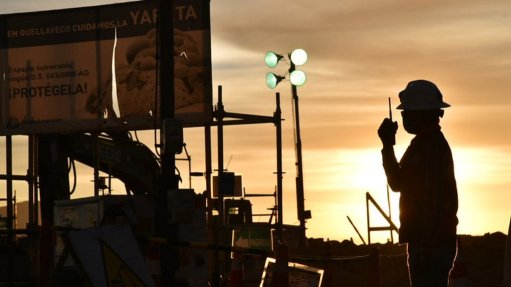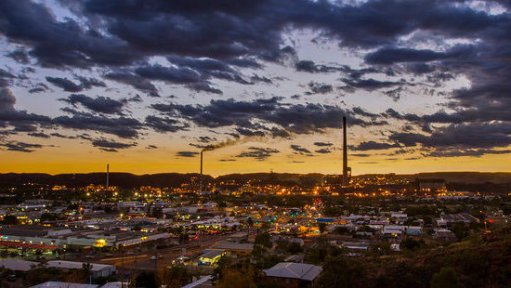More mines being recommissioned


WARREN BEECH Care and maintenance not properly implemented can result in the deterioration of excavations, the plant and equipment, which, in turn, could pose a challenge when restarting operations
Many South African mines have, in recent years, been placed under care and maintenance, owing to various factors, including an increase in production costs, Covid-19 lockdown restrictions and electricity, infrastructure and water constraints, says law firm Beech Veltman CEO Warren Beech.
However, better commodity prices for minerals, such as chrome, manganese and battery metals, as well as new technologies and methodologies that improve efficiencies – including optimised beneficiation – have allowed for more mining operations to be reviewed and revived, he adds.
In addition to the direct benefits such as jobs and increased spend on suppliers of goods and services, there are broader benefits because of requirements outlined in the Mining Charter and the mines’ social and labour plans.
Hence, communities surrounding the mines benefit from mining operations that are expected to assist in building infrastructure for the communities such as schools, hospitals and recreational facilities and housing.
Taxes and foreign exchange can also contribute to the broader and immediate economy.
“The multiplier effect applies, which means that typically, for every person employed at a mine, up to ten other persons benefit from that employment,” says Beech.
Mining and environmental authorisations remain in place while mines are under care and maintenance, thus allowing for the mines to be restored and recommissioned after implementation of legal and practical measures.
Older mines that have been nonoperational for longer periods, however, face greater challenges than mines placed under care and maintenance.
“In relation to older mines, a more complex practical and regulatory programme would need to be implemented because, in most cases, the mining and environmental authorisations have lapsed, and any persons who want to recommission these older mines would need to comply with South Africa’s extremely challenging and complex statutory framework for lawful mining operations,” adds Beech.
He notes that care and maintenance not properly implemented can result in the deterioration of excavations, the plant and equipment, which, in turn, could pose a challenge when restarting operations.
Should this be the case, extensive programmes would need to be implemented to ensure that operations are safely and sustainably restarted.
Moreover, Beech explains that older mines can often not be recommissioned in time to benefit from the upswing in commodity prices and cycles, owing to the complex application processes for new environmental and mining authorisations.
Hence, he says medium- to long-term views are required for the operations, which create uncertainty and hinder investment opportunities as older mines are, thus, not considered viable investment opportunities.
“Recommissioning mines is an important consideration because of the potential positive impacts and benefits for the South African economy and South Africa as a whole,” adds Beech.
Illegal Mining
While there has been an increasing trend of remining old gold and coal mine tailings over the past decade, illegal mining operations have also increased, which negatively impacts on the recommissioning of mines, says Beech.
“Illegal mineworkers target dumps on older or abandoned mines, and new mines where the mining operations continue to deposit material and minerals onto these dumps, residue stockpiles, residue deposits and tailings storage facilities,” he explains.
He warns that, where reclamation is done illegally, health, safety and environmental compliance is often disregarded, which, consequently, poses risks for those working on the mine.
Further, to recommission mines where illegal mining is taking place requires the illegal mineworkers to be removed and the mining companies would, thereafter, have to ensure that the operations are structurally safe for mining activities to take place.
“Illegal mining requires cooperation among a wide range of stakeholders – from the persons carrying out the mining activities to the organisations that buy the minerals and sell them to the ultimate offtakers. All these stakeholders benefit from the illegal mining enterprise, and are extremely unwilling to give up the benefits gained from the illegal mining,” says Beech.
Additionally, consequences can arise when older dumps are rehabilitated and disturbed.
Such consequences include spontaneous combustion and sinkholes on coal mines, as well as the release of toxic substances that were previously used to extract gold and similar minerals into the environment, including water courses and ground water. This, in turn, poses risk of pollution.
Conversely, if older mine dumps are remined ethically, Beech explains that the operations can be more cost effective and yield higher profit margins, while retreating the dump also supports rehabilitation obligations and can assist in preventing pollution.
Moreover, the introduction of new technologies for mining operations optimise mineral extraction processes, thereby making old dumps and operations, viable.
“There are several investors with a higher appetite for risk, and these investors are targeting mines which are on care and maintenance so that they can be recommissioned. This is generally a good thing because the mines are normally recommissioned in full compliance with the mining and environmental authorisations and with proper focus on health, safety and environmental aspects,” concludes Beech.
Comments
Press Office
Announcements
What's On
Subscribe to improve your user experience...
Option 1 (equivalent of R125 a month):
Receive a weekly copy of Creamer Media's Engineering News & Mining Weekly magazine
(print copy for those in South Africa and e-magazine for those outside of South Africa)
Receive daily email newsletters
Access to full search results
Access archive of magazine back copies
Access to Projects in Progress
Access to ONE Research Report of your choice in PDF format
Option 2 (equivalent of R375 a month):
All benefits from Option 1
PLUS
Access to Creamer Media's Research Channel Africa for ALL Research Reports, in PDF format, on various industrial and mining sectors
including Electricity; Water; Energy Transition; Hydrogen; Roads, Rail and Ports; Coal; Gold; Platinum; Battery Metals; etc.
Already a subscriber?
Forgotten your password?
Receive weekly copy of Creamer Media's Engineering News & Mining Weekly magazine (print copy for those in South Africa and e-magazine for those outside of South Africa)
➕
Recieve daily email newsletters
➕
Access to full search results
➕
Access archive of magazine back copies
➕
Access to Projects in Progress
➕
Access to ONE Research Report of your choice in PDF format
RESEARCH CHANNEL AFRICA
R4500 (equivalent of R375 a month)
SUBSCRIBEAll benefits from Option 1
➕
Access to Creamer Media's Research Channel Africa for ALL Research Reports on various industrial and mining sectors, in PDF format, including on:
Electricity
➕
Water
➕
Energy Transition
➕
Hydrogen
➕
Roads, Rail and Ports
➕
Coal
➕
Gold
➕
Platinum
➕
Battery Metals
➕
etc.
Receive all benefits from Option 1 or Option 2 delivered to numerous people at your company
➕
Multiple User names and Passwords for simultaneous log-ins
➕
Intranet integration access to all in your organisation


















